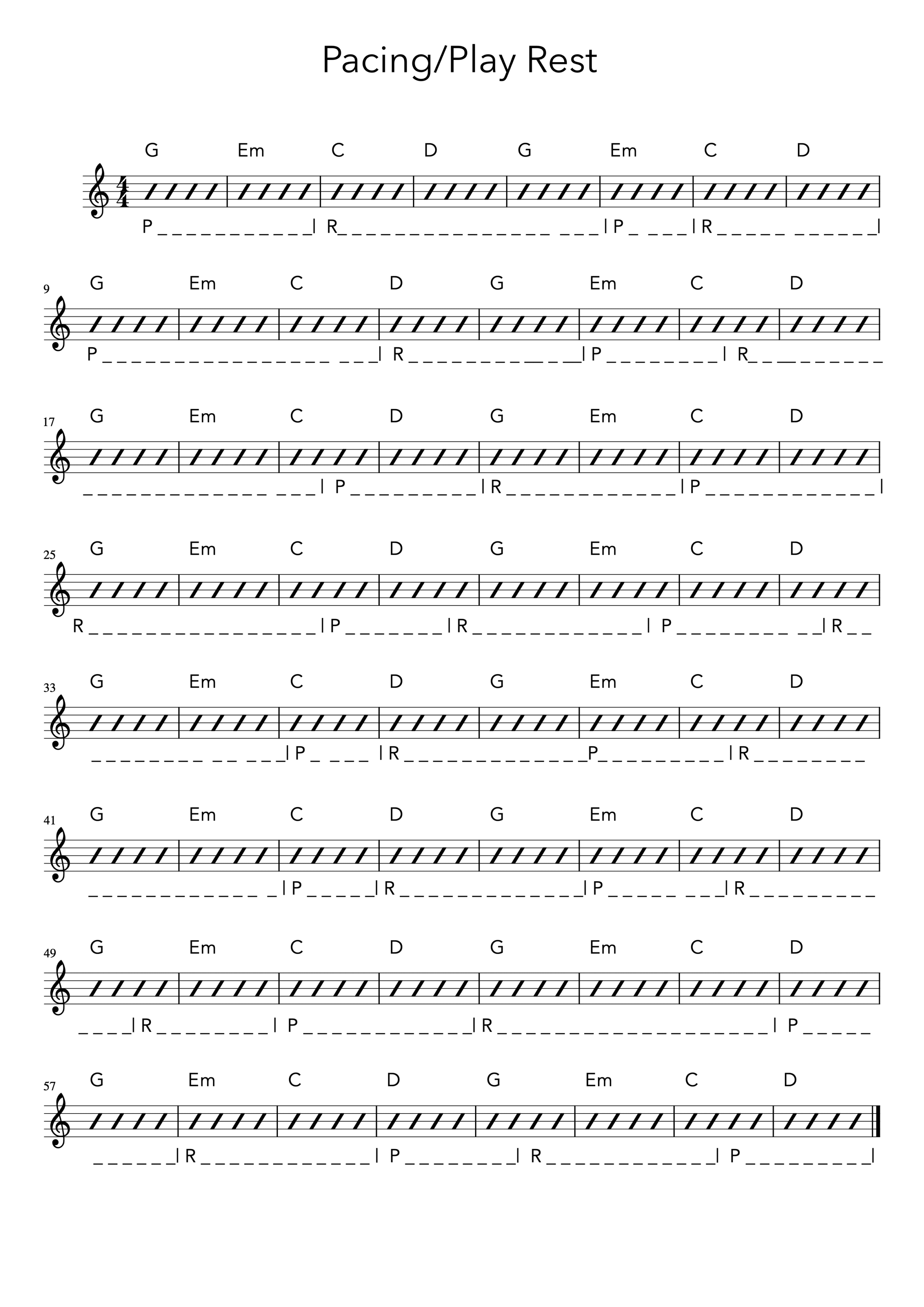Pacing is one of those invisible skills when it comes to improvisation. It’s to do with controlling how much you play and how much you rest for in an improvised (or indeed a composed) solo. It might seem counterintuitive that we need to practice ‘not playing’ – surely we need to practice playing? But without training this, we never get used to being in the flow of the music in a conscious way. Solos can lack balance if we never train ourselves to focus on silence.
Your motifs and melodies have space to shine and breathe if there is enough rest space. It also gives you time to think and be before your next musical idea and retain your focus on the direction of the solo – rather than just not play any really scratchy notes. This is one of the hardest aspects of improvisation to train by yourself. Usually without working on pacing in a deliberate way, we are all inclined to start playing and continue playing all the way through.
It’s common for the note density to increase as the drama builds in a solo, but this is only effective if there have been rest spaces earlier.
You can use pacing ideas over one chord, two chords or a longer chord progression, and even – no chords, just metronome, which means you have to count rigorously.
To begin with, you just want to get used to counting where you are and playing some notes, even just one or two, from the scale that accords with the key while you see the ‘P’ for play in the music, and then stopping at the ‘R’ for rest.
After you’ve done this for a few times, you may be in a position to start using your ‘play’ sections to create actual motifs, and your ‘rest’ sections to hear the echo of the previous idea in your mind’s ear to help you decide what you will play next. Focus on the RHYHTM of the motif when you’re thinking ahead to what you might play next.
Try this example is in G – G Em C D. You can use G major pentatonic or other G major material. You can stay in one position. The aim is to get you used to counting and as you’ll see if you’ve never done this, it’s quite enough of a challenge.

G Em C D 77bpm
